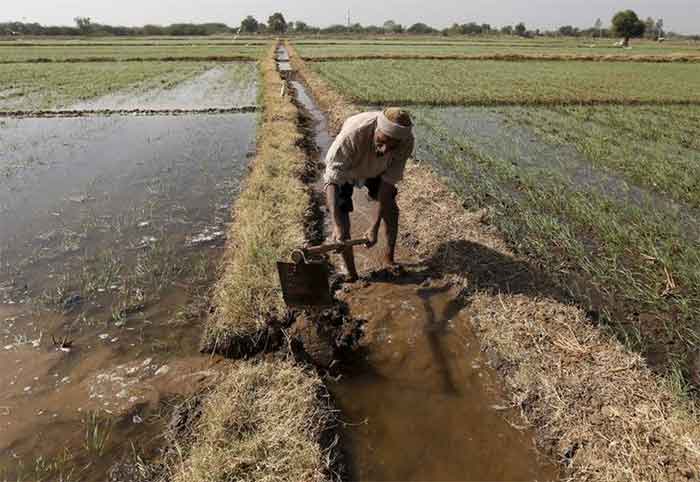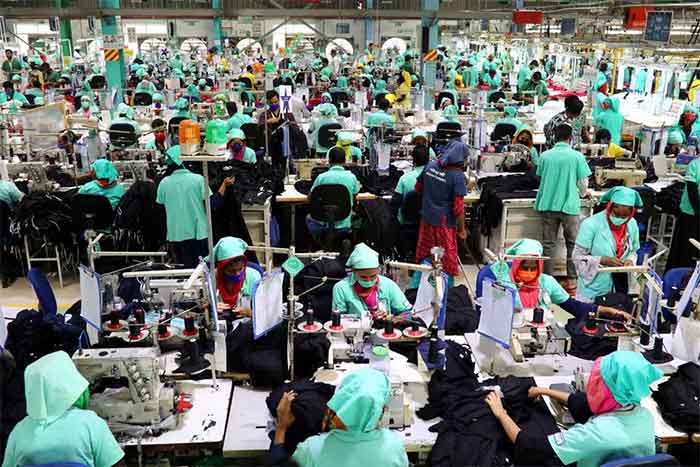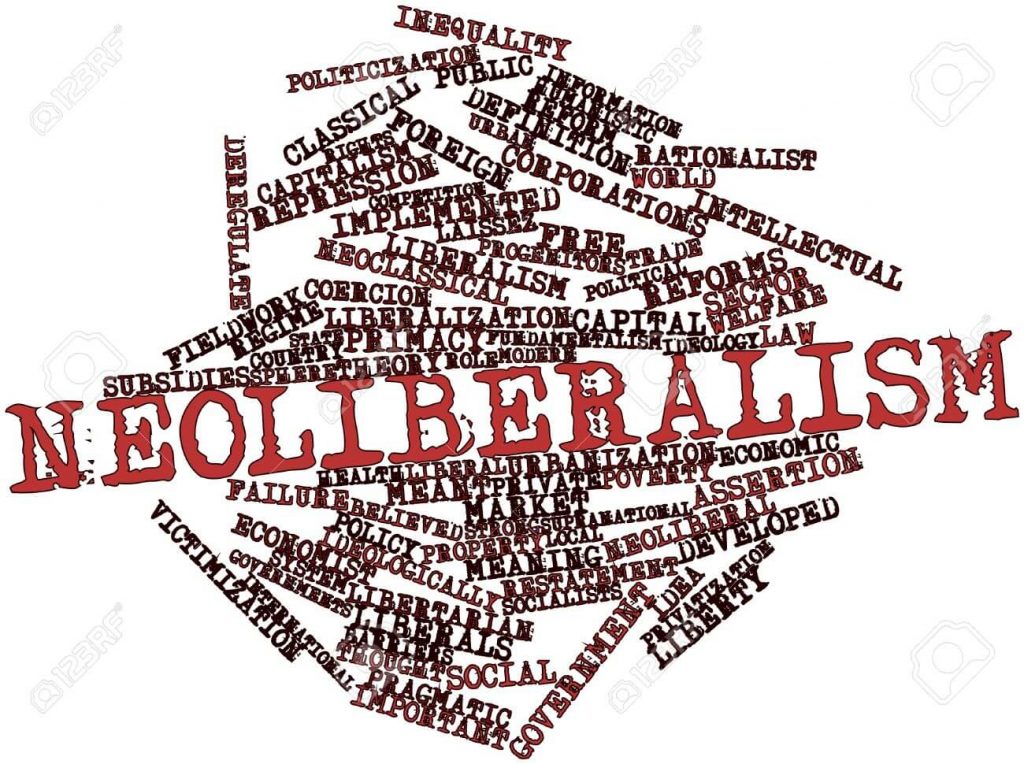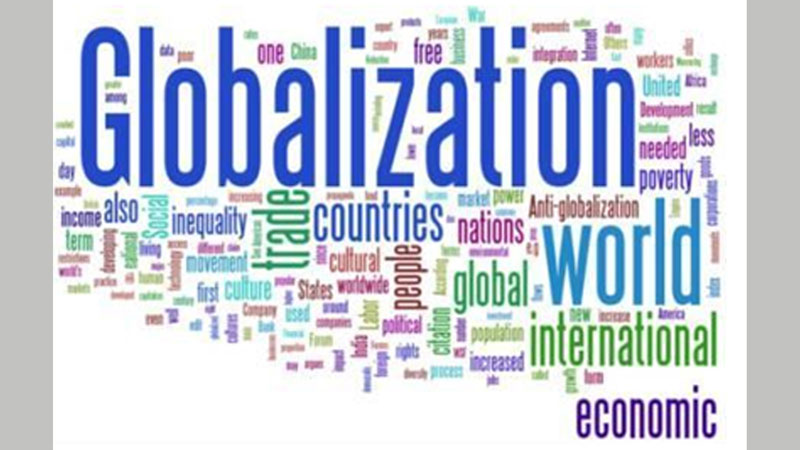
One of the most significant commitments of last five decade of twentieth century has been to economic growth and trade expansion, and we have been spectacularly successful in accomplishing the both. Global economic output expanded from $3.8 trillion in 1950 to $18.9 trillion in 1992, nearly a fivefold increase. And to achieve that economic growth and trade expansion, these institutions played significant role in making economies borderless and turn national and sovereign economies into global economy, through globalized economic model. In which globalization is at its center and the idea of globalization is driven by the free market and open market policies. The idea of globalization was propagated by saying that globalization would be the golden age for humanity. In terms of economic growth, new job opportunities, zero hunger and poverty, global interconnectedness etc. However, The policies of globalization, market driven economy and the impartiality of international institutions have been questionable time and again. It is because even in the world’s affluent countries, high levels of unemployment, falling or real wages, greater dependence on part-time jobs without benefits, weaking and shrinking of the middle class, lacking of social and financial security among large section of the society. All those questions have become relevant on the globalized economic model, free and open market economy, in the COVID-19 pandemic phase and the pandemic has made us think about what needs to be done to absorb the times of crisis. Does the global economy help or the local border economy helps in difficult times?
Globalization and marketism policies of the last 5 decades have promoted corporate and multinational companies all over the world. Because of which today corporate and multinational companies all over the world control the economic policies. And the entire politics, policies and electoral system revolves around corporates. This is the reason that in the last decade, the corporate world has increased its interference in the politics of the world rapidly. As a result, in most democracies of the world, the importance of money in the electoral process and the accountability of political representatives to the people was lost, and crony capitalists or their caretakers became the guardians of democracy. Due to which the social power in a democracy started to lag behind the state power. And the issues related to the public disappeared. We all know that western countries also claim themselves to be the greatest protectors of democracy. But the policies of globalization do not match with the democratic system, if seen clearly, the policies of globalization are against the democratic system. Because the foundation of democracy rests on the social system. On the other hand the globalization system is based on the policies of free and open Market. Therefore, simultaneously pursue of democracy, national self-determination, and economic globalization cannot be sustainable. When the social arrangements of democracies inevitably clash with the international demands of globalization, national priorities should take precedence. Economic and social inequality continued to grow in developing countries due to the non-matching of the policies of globalization with the social arrangement. Because social economy is important in a democratic system. In which the local economy works on a decentralized economic model between the government, corporate and society. Due to which business is also done and the possibility of accumulation of wealth and resources is minimal. Whereas the globalized economic model works on the money economy, meaning that the globalized economic model separates the society from the economy model and puts it in the bucket of the market alone. So sometimes corporate deliberately creates market for commodities. Therefore, economic boundaries must coincide with political boundaries. If not, then democracy becomes hollow façade. When economy becomes global and governments are national, then corporate and institutions functions largely beyond the reach of public accountability. Thus, in most of developing countries the rich are getting richer and the poor are getting poorer. The growing crisis of climate change and income hit on middle class, laborers and service class in developed countries pushed the large population of the world over increasing corporate control cross-section from basic amenities like health, education, water, food etc. Because corporate houses work on the model of profit earning and see everything through the prism of commodity and trade.
We can understand how globalization and market economy exploited the middle and lower class and the rural economy of developed nations too. Presently almost half of Europe on streets and protesting over inflation, cost of living crisis, demanding for pay hikes and relief for electicity bills and energy bills. From 15 Dec 2022, In UK nurses, postal services, railway unions, trade unions, climate change activists, students, pensioners and households are protesting against the government over economic crisis they are witnessing. 40,000 railway employee protesting under the banner of railway union RMT, 25000 nurses professional looking to shift from the career. As, in India unemployment situation touches 45 year high same in UK inflation touches 41 years high, which clearly showcases that in developed countries middle class, laborers and service class is feeling out from the economic policies. These protest are not restricted to UK alone, some cities of countries like Italy, Romania, Germany, France etc.
We can understand from the present situation of Europe and the increasing anger of the people that even in the developed countries, the policies of globalization seem to be unable to meet the basic needs of the people. Despite, globalization and open market policies have reached their peak in developed countries. Story Does not ends in Europe, similar visuals coming from the USA also; in US 7000 nurses are on strike and demanding pay hikes and increase the staff in the hospital. As per the New York state nurses Association statement, hospitals are only looking for profit by recruitment lesser staff and by lesser recruitments. Protests all across the western world showcase that the fundamental principal of corporate and private player’s controlled economic model is to earn profit, at any cost.
In case of India, India’s economic direction is also rapidly heading towards corporate control economic model the way corporate acquisition the small companies. In last 5-6 years India un-organized economy is completely shattered due to three reasons
- Demonetization
- GST
- Corona pandemic
Demonetization and GST are the example of policy favoritism decision done by the government so that corporate houses enter into unorganized sector also Because Demonetization and GST turned the Indian economy in a centralized control economy. Due to Demonetization and GST the kirana stores in villages and small towns juggling for their existence. Same is the case with the MSMEs, because big fishes are not giving the leveling playing field to startups from biding projects to market accessibility. Moreover, biding process and policy itself favors few corporate players. We can understand this with and case study. Food Corporation of India release tender for developing silos as Food grain storage facility. In July 2022, the Food Corporation of India floated a tender for making 66 silos to store 24.75 lakh metric tones of food grains. These silos are to be built in 7 states and 1 union territory of the country. And this tender was divided into 3 different projects.
| Project | No. of Silos | Location |
| Project-1 | 26 | Punjab |
| Project-2 | 22 | Bihar,UP,West Bengal |
| Project-3 | 18 | Gujarat,Haryana,J&K,MP |
You can understand how the 66 silos are divided into 7 states and 1 union territory through the above table. That is, a total of 26 silos are to be built in Project 1 in Punjab. Their cluster has been kept so large that small and medium class traders cannot even bid for the tender. And when you look at the second project and the third project, you will see that 22 silos are to be built in the second project and 18 silos in the third project which are spread over Bihar, Uttar Pradesh, West Bengal, Gujarat, Jammu Kashmir, Haryana, Madhya Pradesh. This is directly showing that due to the large size of the cluster, small and medium traders could not bid for this tender. Means corporate houses whose business is spread across the country. Only those people will be able to bid and only those people will get this tender. This situation is also an example of concentration of economy in the hands of corporate. The current economic policies have become such that it is as if it has participated in the race alone and it has come first.
Now the corporate footprints are entering in the rural India through corporatization of agriculture and retailers by the means of walmartisation of rural economy too.
In a strategic manner corporate and the government policies want to disengage the rural people from their traditional works like farming and allied activities, insights of this strategy we can see from the Niti aayog report which states that the contribution of agriculture in GDP should be reduced to 6% from 16% at present. That means to favor the corporate house agriculture is being deliberately made loss making, so that farmers give up on framing own their own. And then elite class will start acquisition the land. Basically, corporate wants to turn land into manufacturing unit, crop into commodity as they want to do business of hunger.
Thus, rural economy is shivering due to increasing footprints of corporate. As this corporatisation is undermining the significance of unorganised sector economy, therefore increasing corporatisation would worsen situation of unemployment and inflation as western countries also witnessing. The situation which is currently being seen in rural areas will result as, India becoming Brazil instead of America. In which 75% people of India will be seen in slums in district centres. Hunger, inequality and equality of livelihood will go out of control. Then there will be a huge impact not only on rural India, but also on the prosperity, unity and unity of the whole of India. Therefore, by 2030, a comprehensive value and moral change will have to be done keeping rural India in mind. Because economic inequality promotes economic injustice due to which a large section of the society does not even get basic facilities due to the centralization of resources and wealth. Due to which the social system also starts changing and a large part of the society starts feeling untouched. For example, social conditions in rural India are deteriorating as due to lack of economic security there is a large section of youth in the country that are running away from marriage or their marriages are not happening. This will have a direct impact on the Demographic Dividend of India in the coming times. Due to running away from marriage, in the present situation, mental stress is also increasing on the parents, on which no one is keeping an eye. We have to seriously see and understand the increasing economic stress of rural India. For which “Bharat” will have to be made the center of the country’s economic policies, not “India”.
Moreover, if the corporate control the large part countries of production this would be the bigger challenge for the lower income groups. Therefore, we need to standup together to stop this corporatisation if we want to live with dignity. This is alarming situation as situation reached the now or never stage, so we have to come together to raise the voice against increasing corporatisation. And demand should be raise for new laws to provide financial and social security to the villages of India.
Tarunkumar is a social activist working against corporatisation and its impact on economy















































